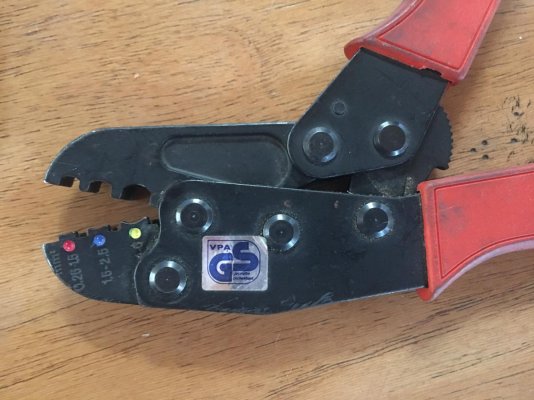I'm going to have a LOT of electrical work in my near future, with a lot of crimping involved. I just bought a new, relatively inexpensive crimper on Amazon, and picked one that was advertised for "insulated terminals" - but it still doesn't seem to be a good fit for the typical connectors that I'm using.
I'm planning to use ring terminals and butt connectors, ideally the really good ones that have adhesive in them, and heatshrink.
Is there a "good", "reasonably priced" (maybe under $50), "ratcheting" crimper that I might be able to find on Amazon or similar that will work for this?
Especially for the small ones, I can get the job done with a pair of vice grips - but I'm sure there's got to be a much better answer than that... And I'm curious to see how much groaning and grief I'll get over even mentioning vice grips!! <grin>
And I'm curious to see how much groaning and grief I'll get over even mentioning vice grips!! <grin>
John
I'm planning to use ring terminals and butt connectors, ideally the really good ones that have adhesive in them, and heatshrink.
Is there a "good", "reasonably priced" (maybe under $50), "ratcheting" crimper that I might be able to find on Amazon or similar that will work for this?
Especially for the small ones, I can get the job done with a pair of vice grips - but I'm sure there's got to be a much better answer than that...
John


